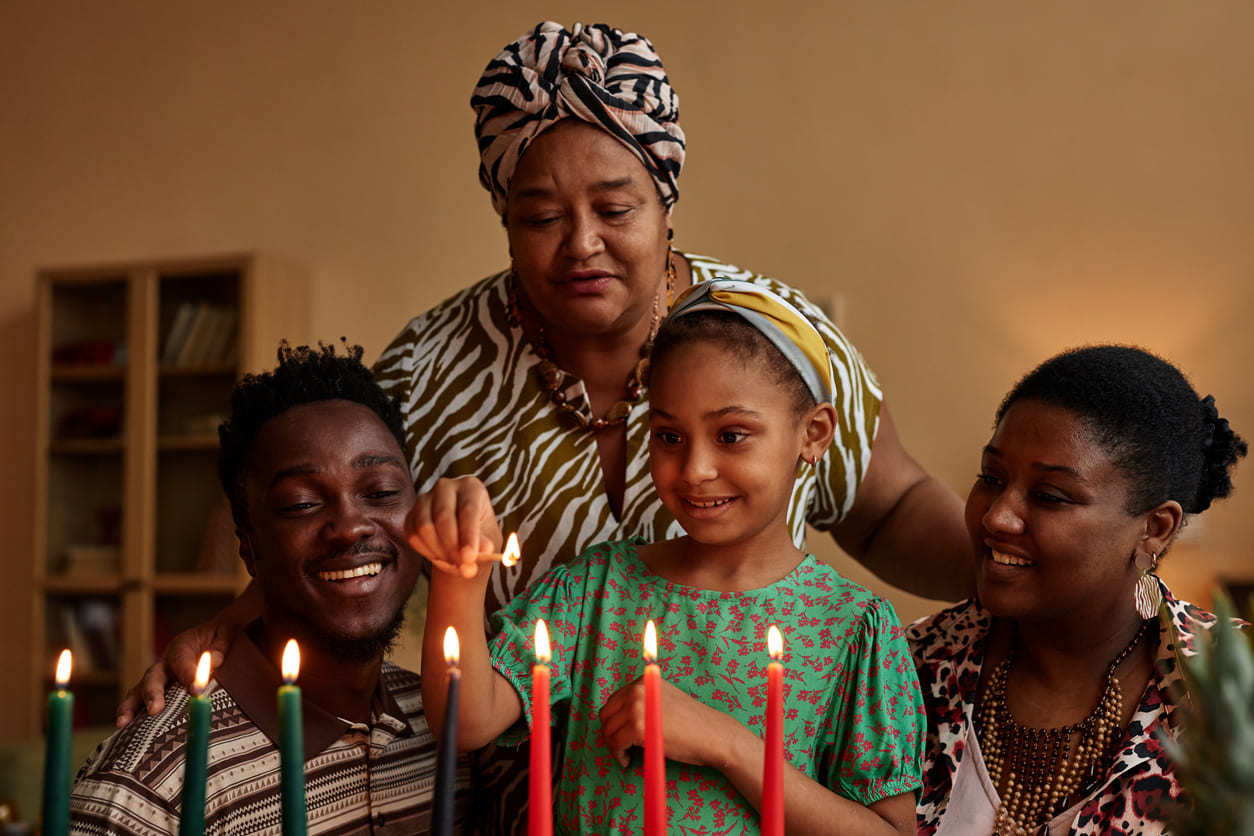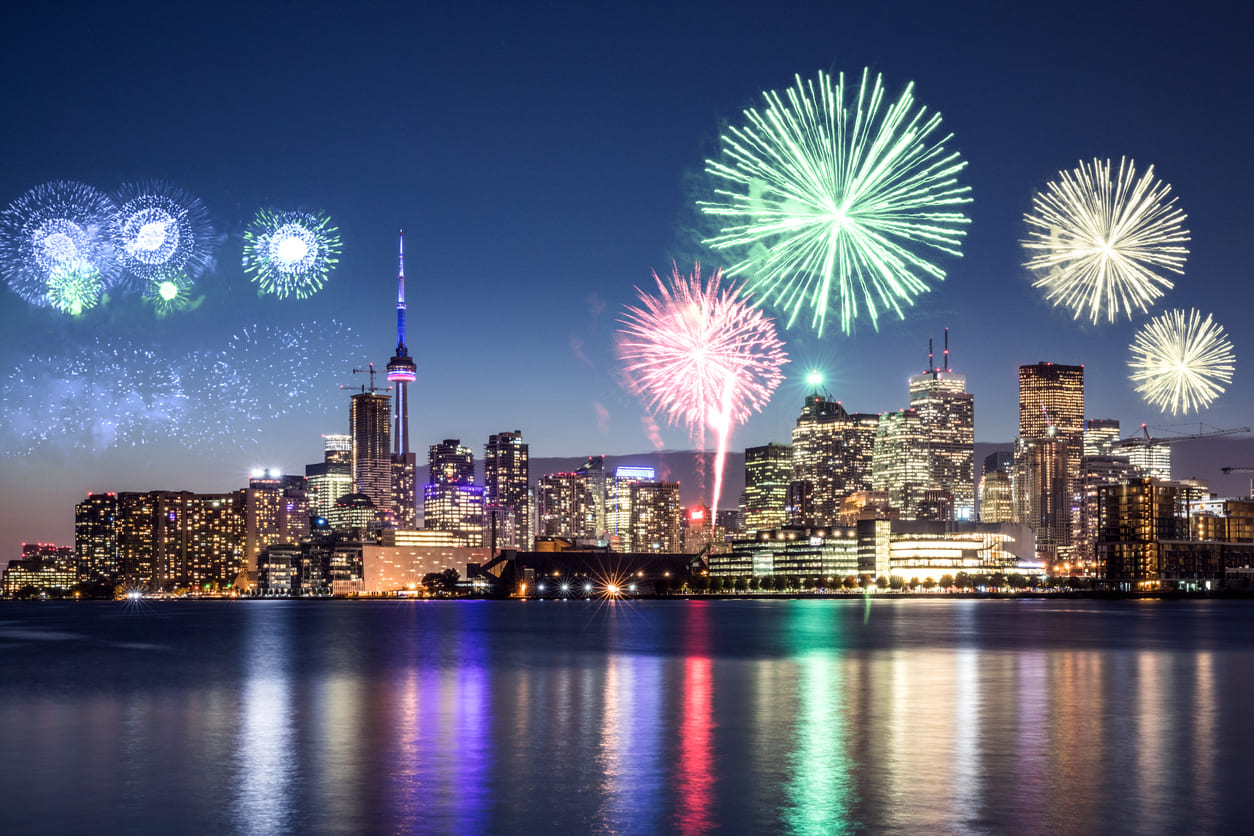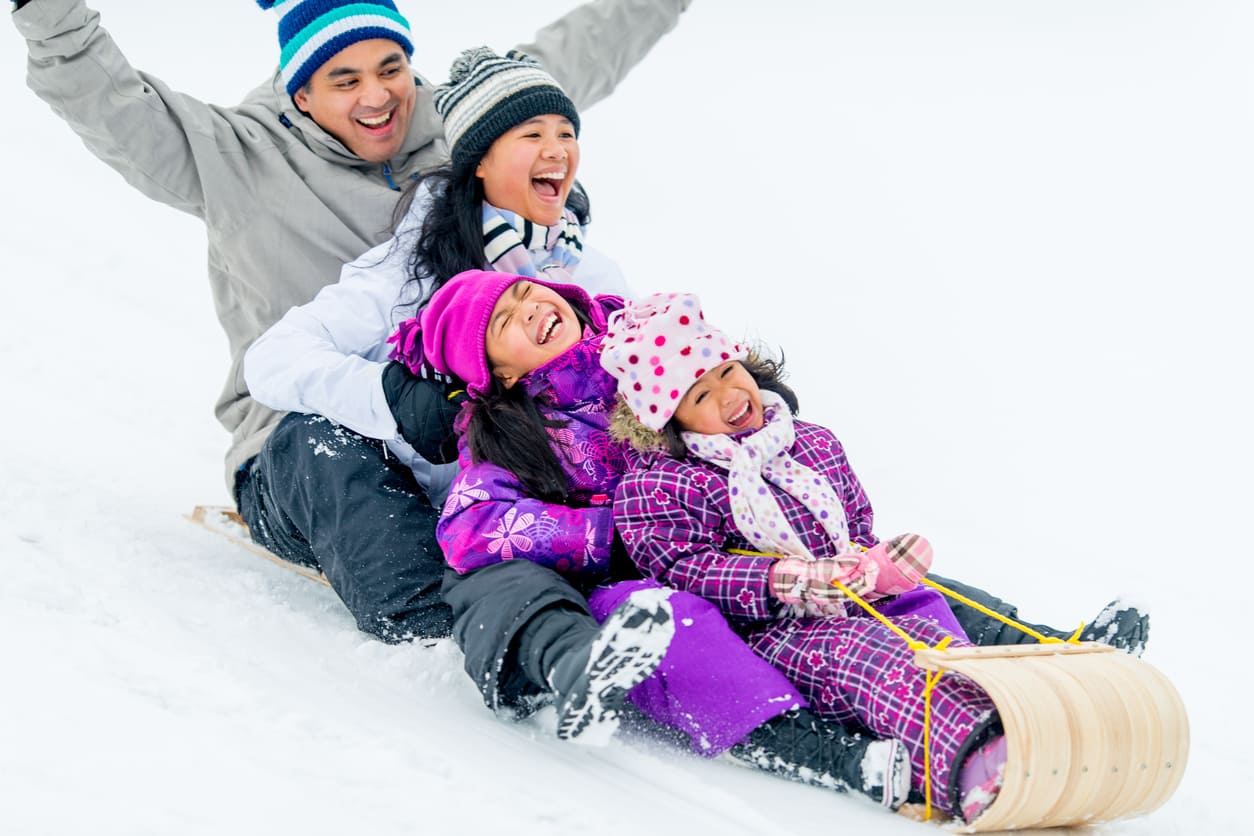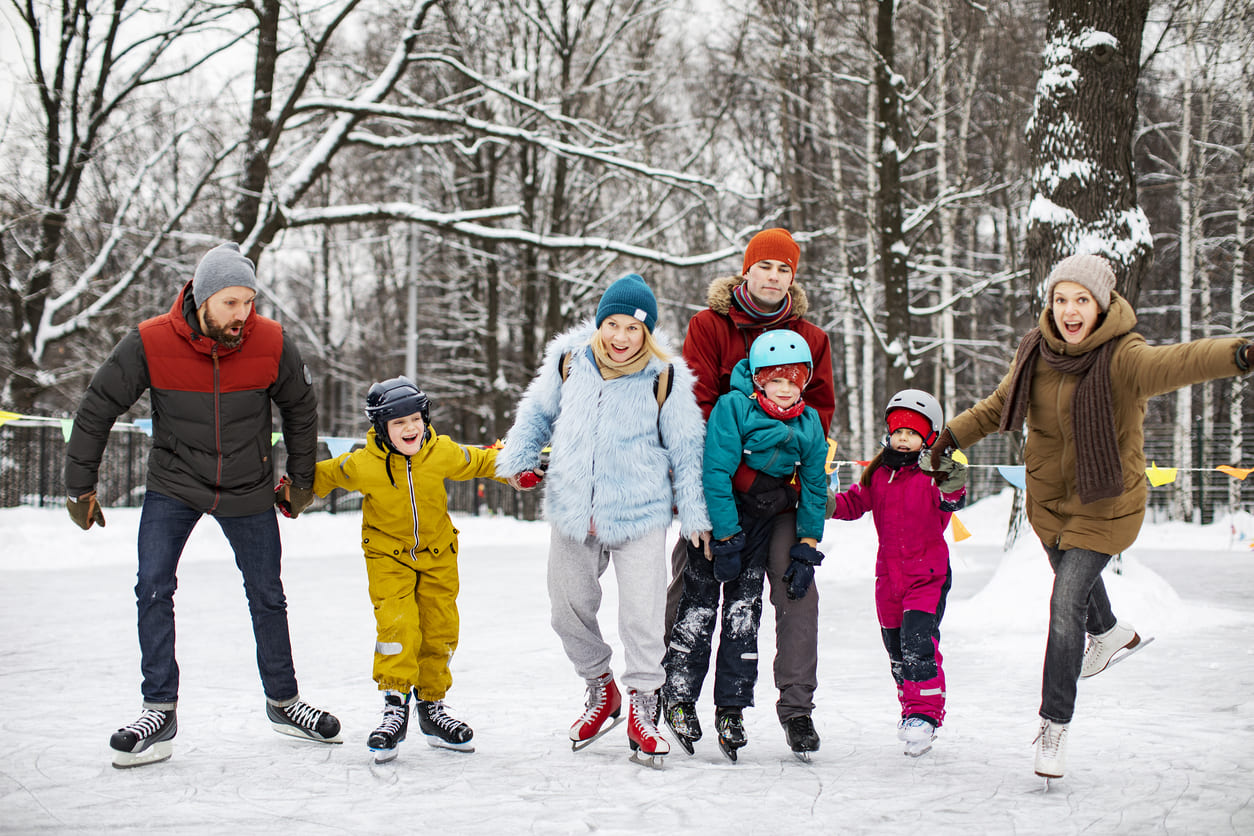Dates of Kwanzaa (first day) in Canada
| 2026 | Dec 26 |
| 2025 | Dec 26 |
| 2024 | Dec 26 |
Canada Holiday Calendars
Kwanzaa (first day) marks the beginning of the seven-day celebration of African heritage, culture, and unity observed by many Black Canadians. It starts on December 26 and focuses on the principle of Umoja (Unity), emphasizing community and togetherness through traditions, storytelling, and symbolic candle lighting.
Kwanzaa (first day): A Public Holiday?
Kwanzaa (first day) is not a public holiday in Canada. It is an observance celebrated by some Black Canadian communities, focusing on African heritage and unity, but businesses, offices, and schools remain open as usual.

Kwanzaa
Kwanzaa is a seven-day cultural celebration observed by some Black Canadian communities to honor African heritage, unity, and traditions. It was created in 1966 by Dr. Maulana Karenga, a professor and activist in the United States, to bring together people of African descent and promote cultural pride. Over time, Kwanzaa became recognized in Canada, where it is celebrated by many families and organizations that embrace African roots and values.
Kwanzaa is observed from December 26 to January 1, with each day dedicated to a specific principle known as the Nguzo Saba (Seven Principles):
- Umoja (Unity) – Strengthening community bonds through mutual support, respect, and shared cultural values.
- Kujichagulia (Self-Determination) – Defining, shaping, and speaking for oneself while embracing cultural identity and pride.
- Ujima (Collective Work and Responsibility) – Supporting, uplifting, and working together to build a stronger and more self-sufficient community.
- Ujamaa (Cooperative Economics) – Building, supporting, and investing in Black-owned businesses to create economic growth and sustainability.
- Nia (Purpose) – Encouraging collective goals, aspirations, and a shared vision for progress and empowerment.
- Kuumba (Creativity) – Celebrating cultural expression, artistic innovation, and inspiring future generations through creativity.
- Imani (Faith) – Believing in oneself, the strength of the community, and the promise of a better future for generations to come.
Though not a public holiday, Kwanzaa continues to grow in recognition in Canada, bringing families, communities, and cultural organizations together to celebrate African identity and history.
Observance of Kwanzaa in Canada
Kwanzaa is celebrated in homes, community centers, and cultural organizations across Canada. The festival begins with the lighting of the Kinara, a candleholder with seven candles—three red, three green, and one black—each symbolizing one of the Nguzo Saba (Seven Principles). Families gather for storytelling, music, and discussions about the importance of heritage and unity. Children and adults participate in reciting proverbs, honoring ancestors, and reflecting on ways to strengthen their communities.
Many organizations in cities like Toronto, Montreal, and Vancouver host public Kwanzaa events, featuring drumming, African dance, spoken word poetry, and educational workshops. Local Black-owned businesses and artists often showcase their work, supporting the principle of Ujamaa (Cooperative Economics). The festival also includes a Karamu (feast), held on December 31, where families and friends share traditional African and Caribbean dishes. Gifts, known as Zawadi, are exchanged, especially among children, to encourage cultural pride and education.
Kwanzaa is important because it reaffirms African heritage and identity, promoting unity, self-determination, and economic empowerment within Black Canadian communities. It provides a space for reflection, renewal, and cultural pride, reminding people of their shared history and strength. While not a religious holiday, Kwanzaa holds deep meaning for those who celebrate, fostering a sense of belonging and community. It continues to grow in recognition, serving as a powerful reminder of cultural resilience and pride in Canada.
Kwanzaa (first day) Observances
| Year | Date | Weekday | Name | Holiday Type |
|---|---|---|---|---|
| 2024 | Dec 26 | Thu | Kwanzaa (first day) | Observance |
| 2025 | Dec 26 | Fri | Kwanzaa (first day) | Observance |
| 2026 | Dec 26 | Sat | Kwanzaa (first day) | Observance |
| 2027 | Dec 26 | Sun | Kwanzaa (first day) | Observance |
| 2028 | Dec 26 | Tue | Kwanzaa (first day) | Observance |



